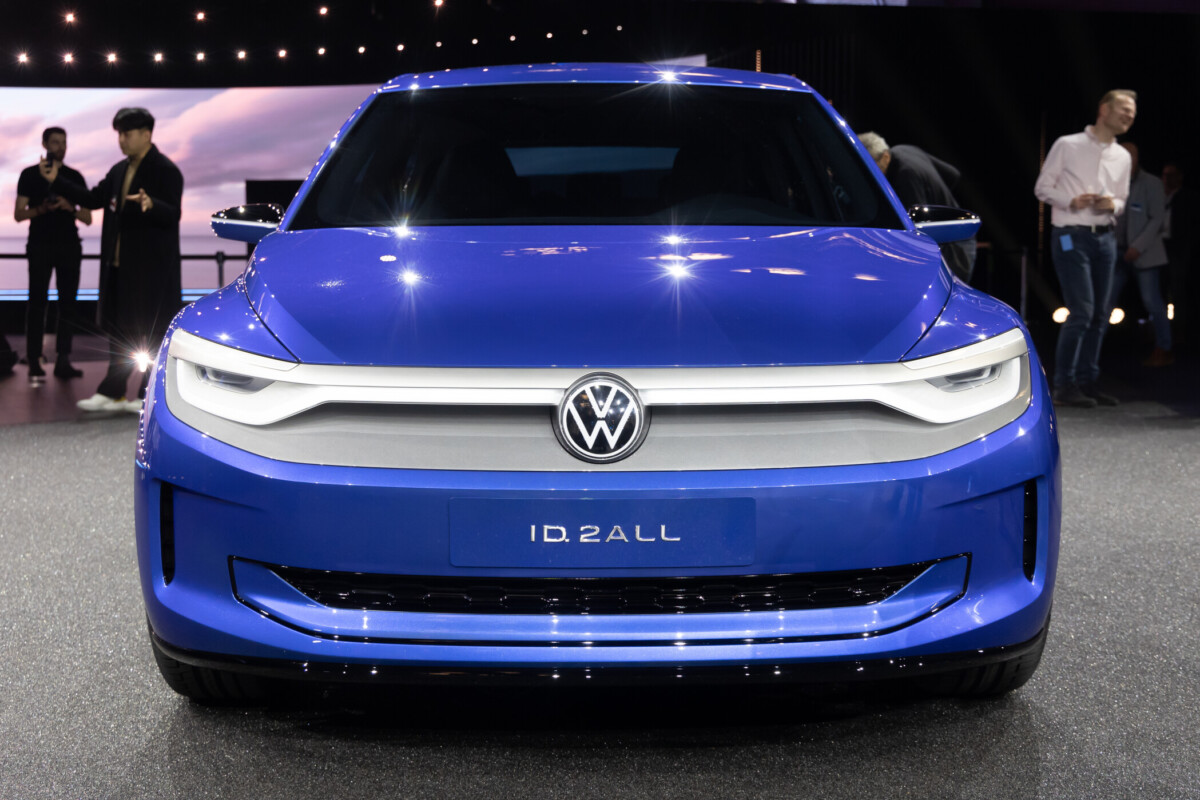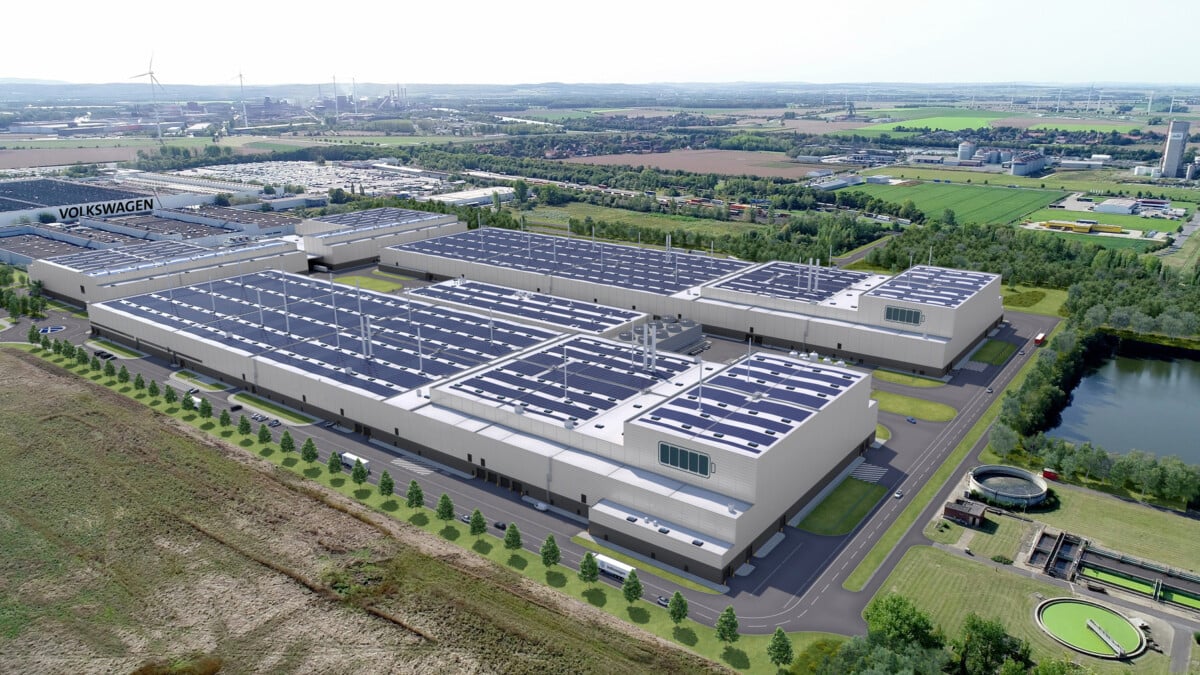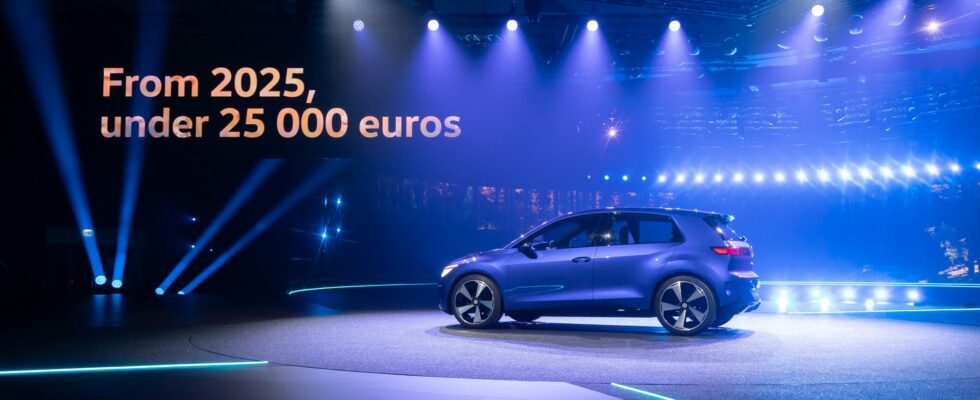Volkswagen seems to have found the recipe to reduce the price of its electric cars and thus be able to sell its future ID.2 below the 25,000 euro mark. For this, the firm will soon inaugurate a new factory in Europe and will invest in several lithium mines in Canada.
If the price of electric cars tends to fall with the arrival of new, more affordable models such as the Dacia Spring and other MG4s, we are still far from parity with equivalent thermal models. And yet, an electric car is often cheaper, due to lower maintenance costs and the cost of energy. And in addition to autonomy, the price still remains a major obstacle to purchase for many motorists.
Several areas of development
However, everyone could have to go through it, since Europe wants to ban the sale of thermal cars from 2035, even if some countries oppose it. Several solutions are being considered by manufacturers, such as reducing the size of the batteries. Because this element represents about 40% of the total price of the car, while the cost of lithium continues to climb.
While waiting for the development of the solid and sodium battery, which is starting very slowly thanks to the diamond mark in particular, some manufacturers have other solutions. This is particularly the case of Volkswagen. If the firm has recently increased the price of its electric models, this may not last. In effect, the manufacturer wants to make its cars more affordable.

It is with this in mind that the ID.2all concept was unveiled, announcing a future compact for less than 25,000 euros. And Volkswagen has already found solutions to keep this promise and thus compete with the Renault 5 E-Tech. The first is the manufacture of batteries in Europe. For this, the German firm has just started the construction of a factory located in the city of Salzgitter, Germany.
But now the manufacturer also announces in a press release its desire toset up a second production site in Europe and more specifically in Valencia, Spain. News that may come as a surprise, as Volkswagen instead plans to turn to the United States for battery production due to more attractive financial incentives.
A battery factory… and mines
This announcement follows those of the European Union, which also wishes to put in place measures to promote its industry, particularly with regard to electric cars. Volkswagen’s Spanish plant will be operational in 2026 and should be able to produce 40 GWh per year. Volkswagen’s press release states that it will be possible to increase this power to 60 GWh a little later.
By way of comparison, the Chinese giant CATL plans to produce 8 GWh each year at its German site. For its part, Tesla announces 100 GWh per year in its Berlin Gigafactory and up to 250 GWh after extension. A plan that could also be abandoned because of American incentives. Note that the new Volkswagen plant will be entirely powered by green energy.

In addition to this, and as announced by the American agency Reuters, Volkswagen will also invest in several mines in Canada via its subsidiary PowerCo, which specializes in the production of batteries. As a result, the manufacture of its electric cars will be more ethical and less polluting than with batteries from China. This new strategy will also have a positive impact on prices.
In effect, the extraction will be accelerated and the raw materials more numerous, which will increase supply as demand increases. Thus, the risk of battery shortage will also be reduced. The type of material has not yet been specified, but it should logically be lithium. Volkswagen has previously announced its desire to design its own electric motors, again in order to better control development costs. This will logically be reflected in the final price paid by customers.
To offer a selling price under 25,000 euros with its future ID.2, Volkswagen must surely work on other optimizations. Like Tesla, which will completely rethink its way of producing electric cars in order to market the hypothetical Tesla Mode 2 at $25,000 in the years to come, as explained by the Numerama media.
Our colleagues from Numerama are launching Watt Else, their newsletter dedicated to the mobility of the future. Sign up here to make sure you receive the next issue!
